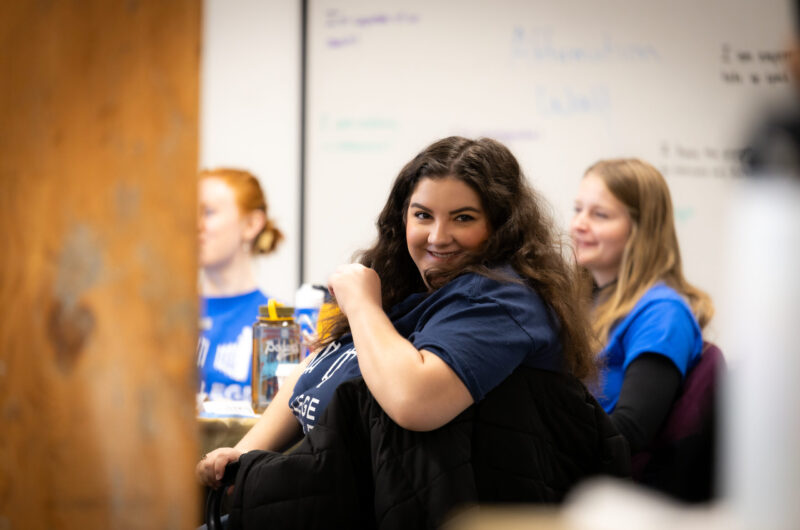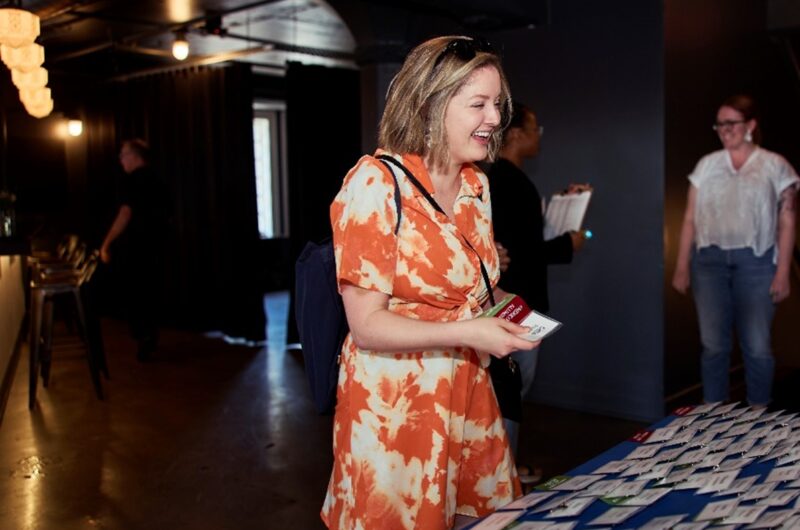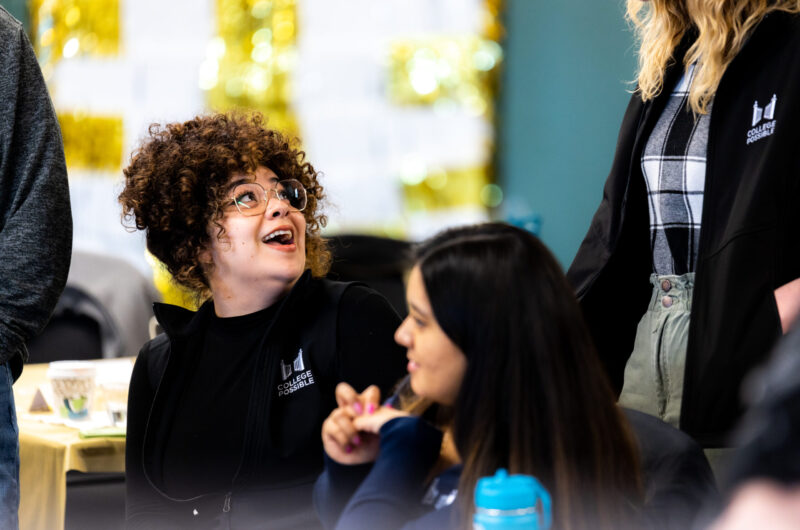Alyssa Vitale has been an active member of the Ambassador Board with College Possible Oregon for the last two years. Last year, she found herself at a place where her volunteer work could easily mesh with her graduate schoolwork. Alyssa shared an in-depth look at her research project with us.
The project was part of a yearlong course on critical participatory action research (CPAR). CPAR stands in opposition to traditional research, which usually prioritizes the knowledge of “experts” who are seen as “impartial” because they come from outside of communities to report on what they observe or find.
By contrast, CPAR prioritizes the voices of community members. It looks very intentionally at the context of a specific community and the people who live in that community; it does not try to make broad generalizations. CPAR is conducted in deep partnership with communities, who ideally participate in every step of the process: coming up with the research questions, developing instruments to collect data (e.g., surveys, interview protocols), collecting the data, analyzing data and shaping the findings. In this way, CPAR seeks to make research not about or for communities, but with them.
When I enrolled in the class, I didn’t have any idea what the research project would look like, but I had been on the College Possible Ambassador Board for several months. I reached out to College Possible to see if there was interest in working on a project. I connected with Margarita, the program director, and we started thinking about possible research areas.
Margarita suggested we research how College Possible students who attended colleges in Oregon felt a sense of belonging at their colleges and how College Possible could better support students in feeling a sense of belonging. In the fall semester, Margarita and I collaboratively worked to refine the research questions and develop protocols for interviews and focus groups.
Lisbeth Marquez-Delgado joined our team early in spring semester. At the time she was a College Possible student and senior at Franklin & Marshall College in Pennsylvania (Now she has returned to College Possible as a coach at her former high school, David Douglas!). Lisbeth was integral in helping us collect data by leading interviews and focus groups. She also helped make sense of the data we collected through analysis.
Our ultimate goal was to use the data to help inform program improvements at College Possible and to share with college partners. Lisbeth and Margarita came up with the brilliant idea of using the research findings to develop a training for the College Possible team that would then be (ideally) delivered by students. The team is currently working on this now!
Some key findings from our project were:
- Relationships are important. Students needs to build strong connections to feel like they belong on campus.
- Many different places and communities. There are endless places where students are able to create connections—but students need at least one place to feel that sense of belonging.
- More College Possible peer connections. Increasing connections between College Possible students on the same college campuses would help some students increase their sense of belonging.
- Families are important. Many students cite their families as very important motivators for them, even when they don’t feel like they belong on their campuses.
This is one example of how our Ambassador Board members and other volunteers can leverage outside resources to support the great work already being done at College Possible and amplify the voices, experiences and strengths that College Possible students bring to the organization and their schools. Students are important partners in the work that we do, not passive recipients of a service.
We are currently recruiting new members for our Ambassador Board. If you are a young professional who is interested in helping to raise awareness and monetary support for College Possible, please reach out to Christina Carl, CCarl@CollegePossible.org for more information.


